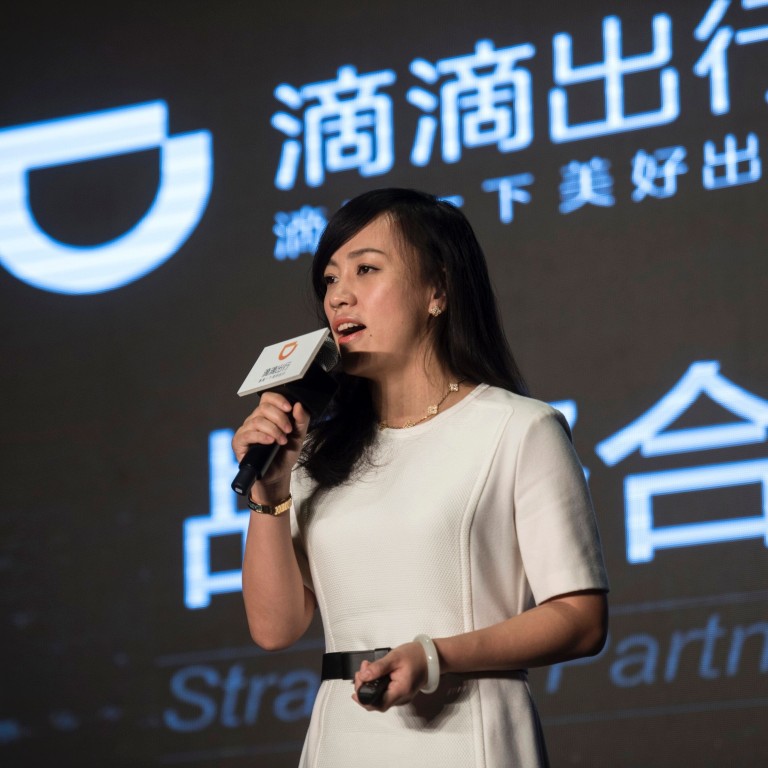
Ride-hailing giant Didi Chuxing denies executive Jean Liu is leaving amid Beijing’s ongoing cybersecurity probe
- Didi threatened legal action to combat ‘malicious rumours’ after Reuters reported that co-founder Jean Liu told associates she plans to leave
- Liu reportedly repeated concerns about a possible government takeover of Didi as Beijing continues a cybersecurity probe with no end in sight
Reuters reported on Monday that Liu told close associates that she plans to step down and encouraged others to look for new opportunities. She expects the government to take control of the ride-hailing giant and appoint new management, according to the news agency, citing sources familiar with the matter.
Didi’s shares plunged 6.6 per cent on the New York Stock Exchange on Monday.
Didi Chuxing’s ride-hailing orders decline amid cybersecurity review
In a post on microblogging platform Weibo, the company said the report was not accurate. “Didi is now actively and thoroughly cooperating with a cybersecurity inspection. Reuters’ rumour involving the management change at Didi is inaccurate information,” the Beijing-based tech giant said.
Neither Beijing nor Didi have offered information on the progress of the investigation, fanning speculation about the company’s fate after it “forced its way” to an IPO overseas against the advice of the cybersecurity regulator. The Wall Street Journal reported on Monday that Vice-Premier Liu He was forced to offer “self-criticism”, a practice once common under Mao Zedong, for failing to stop Didi from going public.
Since the start of the investigation, Didi has denied a slew of reports regarding its future. The company said it is not seeking to go private, as reported by Bloomberg in June. It also denied that it would hand data over to a third party, seek large new shareholders, or that the local Beijing government would take a stake in the company, as Reuters has reported.
The latest denial on Monday was the first time that Didi called out a news outlet by name and threatened legal action.

07:30
Why China is tightening control over cybersecurity
The company’s founder and CEO Cheng Wei will head the Information and Data Security committee established in July, according to an internal memo seen by the Post. Chief technology officer Zhang Bo will be the executive deputy director, giving the new committee a broader scope than the previous group in charge of information security that was established in 2016.
The committee will comprise a number of units that oversee data security, cyberspace and information security, personal information protection, algorithm security, content security and overseas business privacy. A special secretariat was also created to handle emergency matters relating to data security, according to the memo.
Every business division at Didi had to “fully cooperate with the state investigation”, Cheng said during an August 13 meeting, according to an attendee who declined to be named for discussing a confidential matter. Cheng said the company must study and implement the government’s policies and regulations, cooperate with the investigation and conduct rectifications, according to the attendee, and every Didi division has signed “a letter of commitment” to data security.

